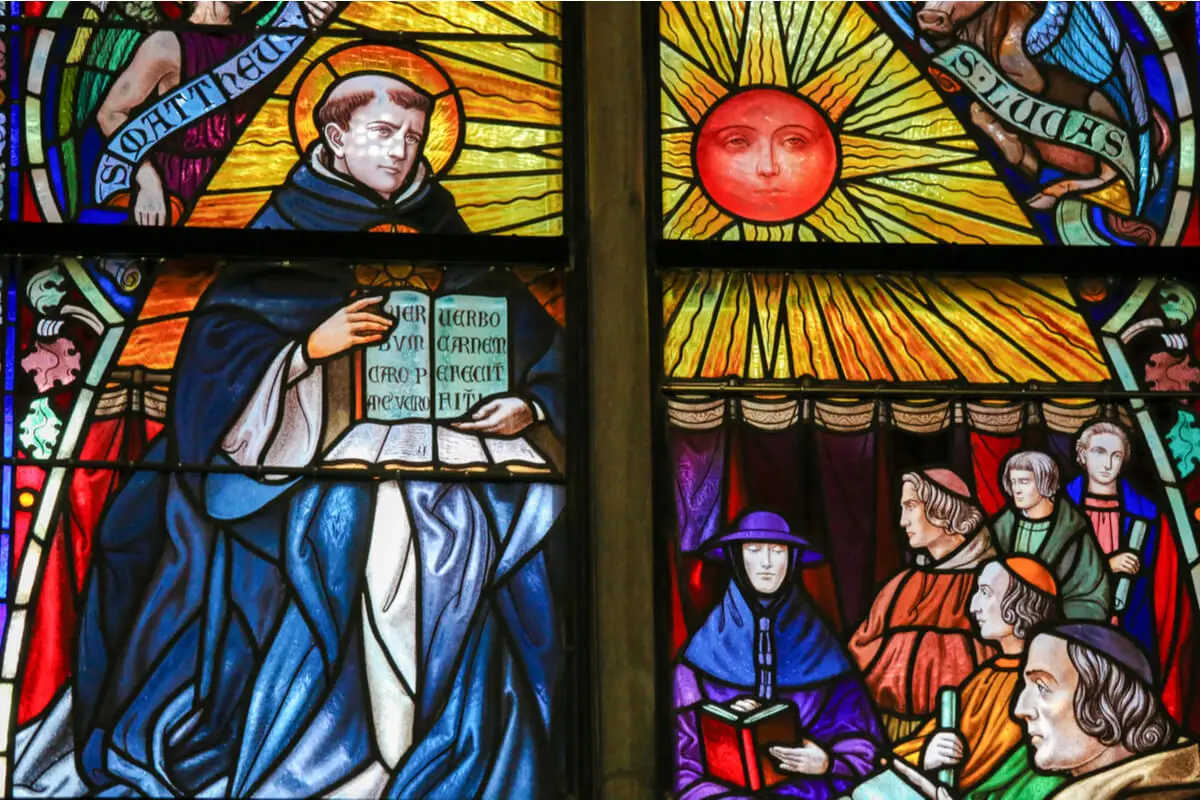"I Think Therefore I Am": Origin and Meaning of this Famous Phrase

“I think therefore I am” is one of the most famous phrases of the philosopher René Descartes (1596-1650), and one of the most famous in the whole of literature. It marked a turning point in the history of thought. The meaning of this phrase represents nothing more and nothing less than the beginning of rationalism and modern philosophy.
But what is the meaning of this phrase? How did it come about? Here’s a detailed explanation.
Origin of the phrase “I think therefore I am”
To understand the meaning of “I think therefore I am”, it is first necessary to refer to the context in which it was created. Descartes’ philosophical reflections emerged at a time of profound crisis and transition: the European Renaissance. During that period, all the convictions that had been assumed as truths during the Middle Ages begin to crumble.
Therefore, what had been considered true up to that moment began to be refuted by scientific advances. Everything became uncertain.
As a result, Descartes set out to leave behind the old ideas of the Middle Ages (mostly based on authority and tradition); and he laid the foundations for the acquisition of new and true knowledge.
To this end, in his work Discourse on the Method (1637), he set out to find some absolute certainty that was based on itself. That is to say, that didn’t depend on something else or on some external authority that certified it as true. This is what used to happen in the Middle Ages, whose knowledge was based on the Catholic sacred scriptures, for example.
This certainty would be a principle that would be the basis for the construction of a new science. Descartes believed that in philosophy there could also exist a method that would allow us to know truths, as happened with mathematics or other hard sciences.
This first irrefutable truth is denoted by the phrase “I think therefore I am”, which refers to the unquestionable truth of our own existence insofar as we think. That is, we can doubt everything else, except the fact that we are thinking at this very moment.

Discover more: Scholastic Philosophy: Meaning and Historical Importance
Methodical or Cartesian doubt?
To arrive at this absolute certainty, Descartes questions the veracity of all acquired knowledge and wondered what sources it was based on.
First of all, he casts doubt on the knowledge provided by the senses, since it is evident that these very often deceive us. Then he affirms that all our experience can be a dream, an illusion, so he also questions the imagination as a reliable source of knowledge.
Finally, he questions whether human rationality can reach true knowledge, resorting to the hypothesis that an evil genius or deceiving spirit can make us err, even when we think we are thinking correctly.
For example, when we perform a mathematical operation, there could be an omnipotent evil genius that makes us believe that we have arrived at the correct result when in fact we have not.
So, if we cannot trust our senses or our intellect, should we accept skepticism and affirm that it is impossible to know the veracity of any fact?
Although he begins by doubting the veracity of everything that exists, Descartes comes to the conclusion that there is an unquestionable truth, from which we can sustain the rest of knowledge. And this truth is that even if I am deceived or mistaken, I am certain that I am thinking, and, if I think, then I exist.
Thus, the existence of a thinking “I” is the first truth he arrives at. A truth that cannot be questioned because, even by doubting one’s own thoughts, we are confirming their existence.
Meaning of the phrase
Now, the meaning of the phrase “I think therefore I am” is clearer: the only thing we cannot question is the fact we are questioning! Therefore, if I doubt, my thoughts exist and so do I.
Whether we are living in an illusion or in the Matrix, we cannot doubt that we think. Because of that, we exist.

Also read: What Are the Differences Between Philosophers and Sophists?
Implications of Cartesian reflections
The phrase “I think, therefore I am” generated a philosophical revolution. Why? Because this expression contributed to the subject being considered to be at the center of all subsequent philosophy.
After Descartes, the thinking “I” began to be both the subject and the object of philosophical inquiry. For if the first truth – the starting point of philosophy and all science – is the existence of the thinking “I”, then, in order to know anything about the world and ourselves, we must analyze and investigate its very content, functions, and properties.
Thus, one of Descartes’ great legacies was the idea that we must begin by getting to know our own mental states (which represent our first certainty) in order to know something about everything else.
Thus Descartes is known as the father of modern philosophy and the inaugurator of one of the most influential philosophical currents in history: rationalism.
All cited sources were thoroughly reviewed by our team to ensure their quality, reliability, currency, and validity. The bibliography of this article was considered reliable and of academic or scientific accuracy.
- Daturi, D. E. (2011). El sentido de la obra de Descartes a la luz de la tradición y su valor prospectivo. CIENCIA ergo-sum, Revista Científica Multidisciplinaria de Prospectiva, 18(3), 275-282. Disponible en: https://www.redalyc.org/articulo.oa?id=10420073009
- Enciclopedia Humanidades. (s.f.). Pienso, luego existo. Consultado el 20 de febrero de 2023. Disponible en: https://humanidades.com/pienso-luego-existo/
- Enciclopedia de Filosofía de Stanford. (s.f.). René Descartes. Consultado el 10 mayo de 2022. Disponible en: https://plato.stanford.edu/entries/descartes/
- Pineda D. (2008). Una lectura del discurso del método desde la perspectiva del conocimiento. Universitas Philosophica, 25(50): 41-61. Disponible en: https://www.redalyc.org/articulo.oa?id=409534414003
- Xiol, J.(2015). Descartes, un filosofo más allá de toda duda. Batiscafo. Disponible en: https://revistas.ucm.es/index.php/ASEM/article/view/56842
This text is provided for informational purposes only and does not replace consultation with a professional. If in doubt, consult your specialist.








